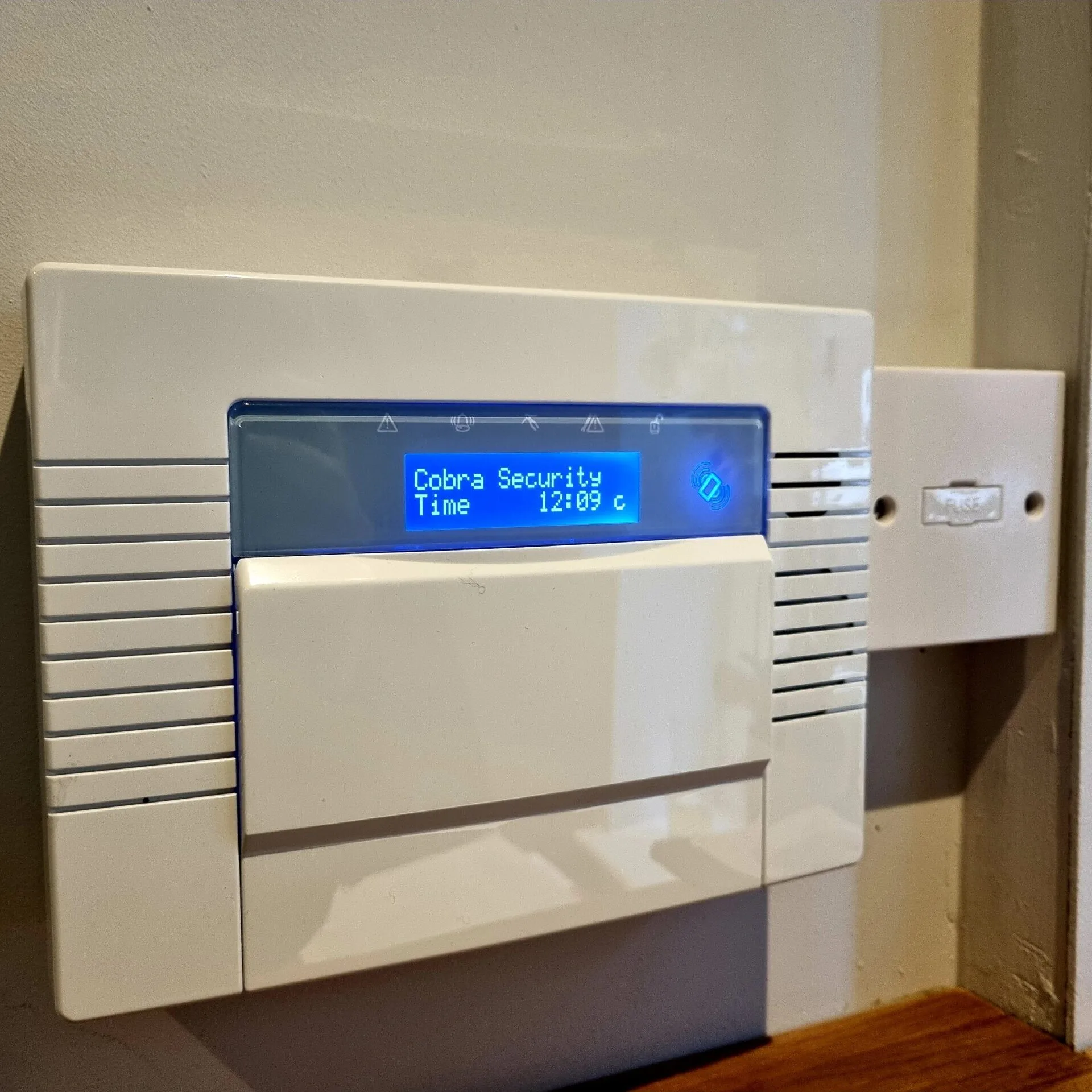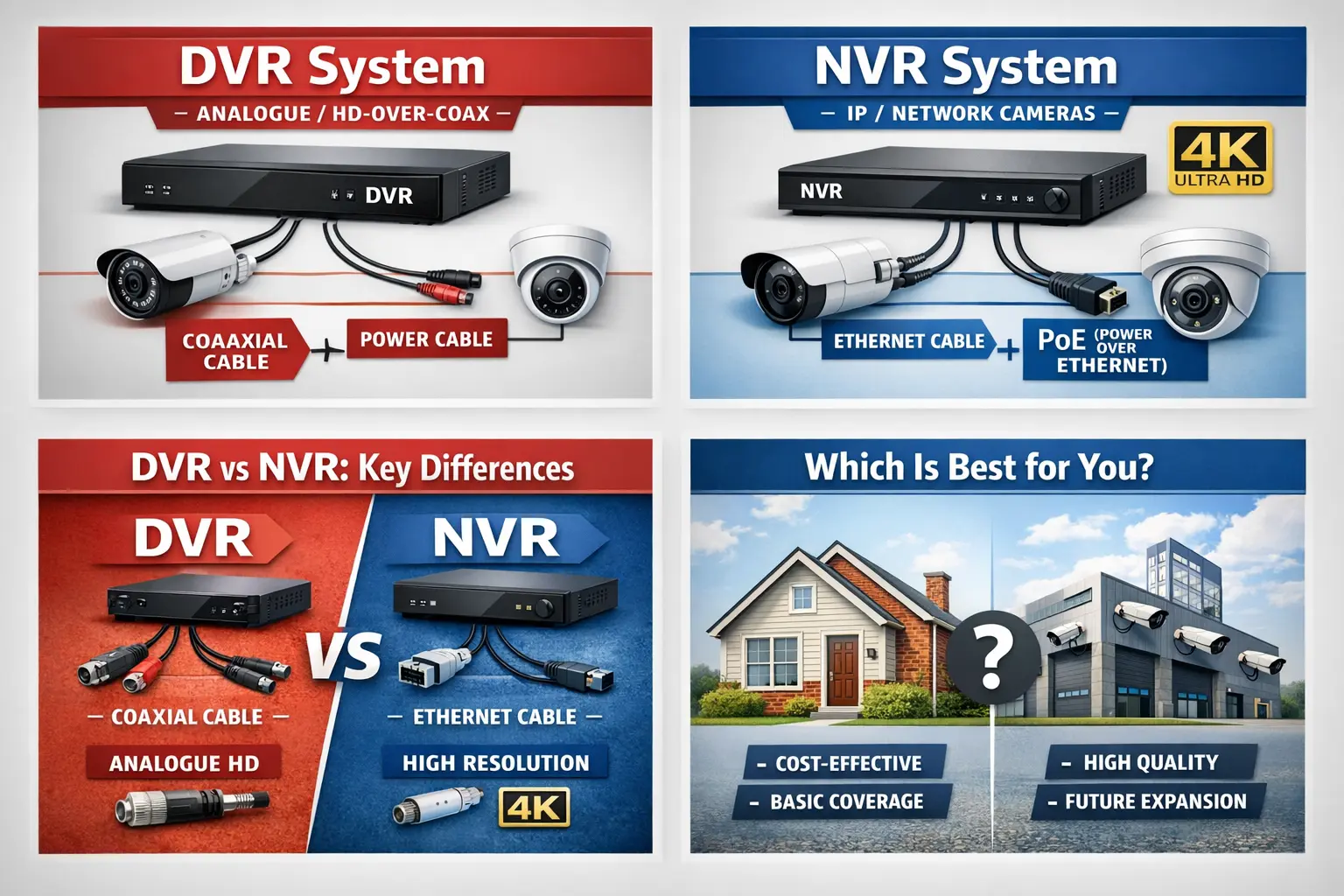
Wireless vs. Wired Intruder Alarms: Which System Suits Your Needs?
When it comes to safeguarding your home or business, the choice between wireless and wired intruder alarms is crucial. Each system has its own strengths and weaknesses, and understanding the differences can help you make an informed decision. This guide breaks down the key aspects of wireless and wired security systems to help you find the perfect fit for your needs.
Understanding the Differences Between Wireless and Wired Burglar Alarms
Wireless and wired intruder alarm systems differ primarily in how they communicate and operate. While wireless systems use technologies such as Wi-Fi or radio frequencies, wired systems rely on physical connections. Each option has unique benefits and limitations depending on your specific requirements.
What Are Wireless Alarm Systems?
Wireless alarm systems operate without the need for physical wiring. They use wireless communication technologies like Wi-Fi, cellular networks, or radio frequencies to connect sensors, control panels, and other components.
Advantages of Wireless Alarm Systems
-
Easy Installation
Wireless alarms are straightforward to install. Sensors can be strategically placed throughout your property without drilling or complex wiring. -
Flexibility and Scalability
You can easily add or relocate components to suit your evolving security needs. This makes wireless systems ideal for homes that are remodeled or expanded. -
Remote Monitoring and Control
With wireless systems, you can manage your alarm remotely using a smartphone app or web portal. Features like arming/disarming and receiving real-time alerts enhance convenience.
Drawbacks of Wireless Alarm Systems
-
Battery Maintenance
Wireless devices rely on batteries, which require periodic replacement. Neglecting this maintenance can compromise system performance. -
Signal Interference
Other electronic devices or physical obstructions can cause signal interference, potentially affecting reliability. -
Higher Initial Costs
Wireless systems often involve higher upfront costs due to advanced components and communication technology.
What Are Wired Alarm Systems?
Wired alarm systems use physical cables to connect sensors, control panels, and power sources. This setup ensures stable communication and power supply.
Benefits of Wired Alarm Systems
- Reliability and Stability
Hardwired systems are less prone to interference, providing consistent and dependable performance. - No Battery Replacements
Since components are powered by your alarm control panel, there’s no need for regular battery changes. - Cost-Effectiveness Over Time
Although installation can be expensive, wired systems often have lower long-term costs due to reduced maintenance needs.
Limitations of Wired Alarm Systems
-
Complex Installation
Installing a wired system involves extensive wiring work, which may require drilling and professional expertise. -
Limited Flexibility
Adding or relocating sensors is more challenging and may necessitate professional assistance. -
Vulnerability to Power Outages
Wired systems rely on electricity and may require a backup power source, such as a battery or generator, to remain operational during outages.
Factors to Consider When Choosing a Security System
When deciding between wireless and wired alarm systems, consider these key factors:
Home Layout and Signal Considerations
Older homes with thick walls may challenge wireless signals, while wired systems may require extensive modifications to install.
Budget and Installation Costs
Wireless systems typically have higher initial costs but are easier to install. Wired systems may be more cost-effective over time but involve higher installation expenses.
Feature Preferences and Security Grades
Security systems are categorized into grades:
-
Grade 1: Basic security, suitable for low-risk properties.
-
Grade 2: Moderate security, ideal for most homes and small businesses.
-
Grade 3: High security, often requiring hardwired components for advanced protection.
Long-Term Maintenance and Reliability
Wireless systems require regular battery replacements, while wired systems may need occasional repairs. Consider the upkeep associated with each.
Hybrid Alarm Systems: The Best of Both Worlds
A hybrid security system combines wired and wireless components, offering the flexibility of wireless alarms and the reliability of wired systems. For example, critical areas can be secured with wired sensors, while less critical zones use wireless ones.
Conclusion: Finding the Perfect Alarm System for Your Home
Choosing the right intruder alarm system depends on your unique needs, property layout, and budget. Wireless systems provide flexibility and convenience, making them ideal for modern homes. On the other hand, wired systems offer unmatched reliability, especially for high-security applications.
For most homeowners, wireless alarms are an excellent choice due to their ease of use and scalability. For larger businesses or properties with stringent security requirements, a wired or hybrid system may be more suitable.
The safety of your loved ones and property is paramount. Take the time to assess your options and make an informed decision.
Reviewed: 12/01/2025 Our articles are reviewed regularly. However, any changes made to standards or legislation following the review date will not have been considered. Please note that we provide abridged, easy-to-understand guidance. To make detailed decisions about your fire safety provisions, you might require further advice or need to consult the full standards and legislation.
Share this article
Written by : Michael Winter
Follow us
A quick overview of the topics covered in this article.





